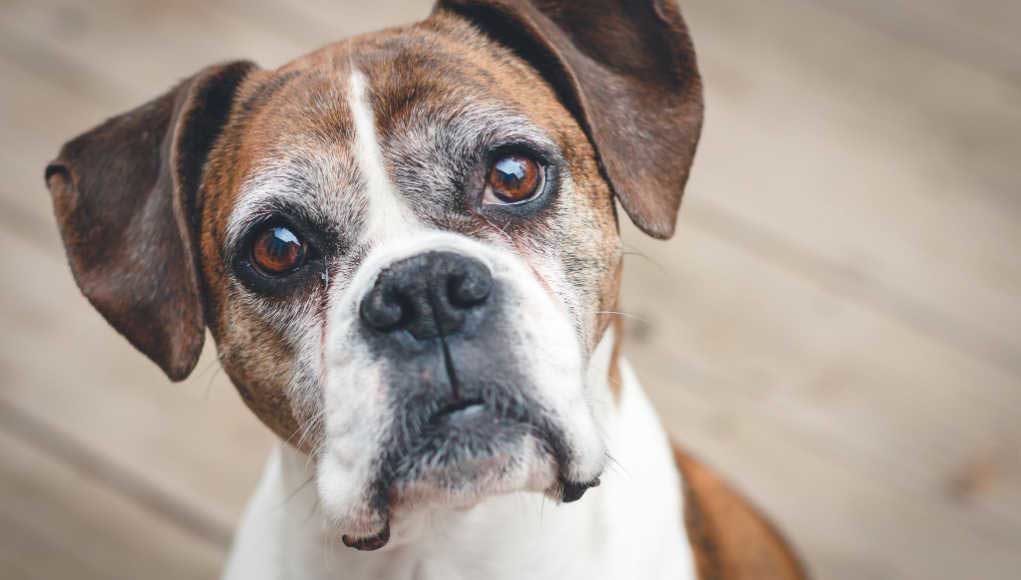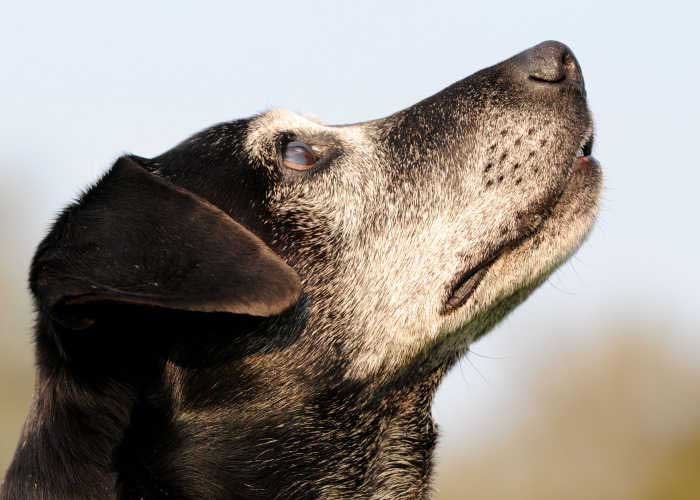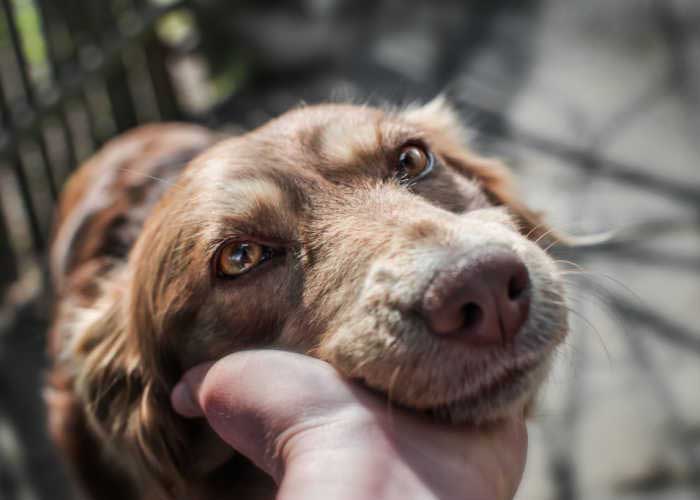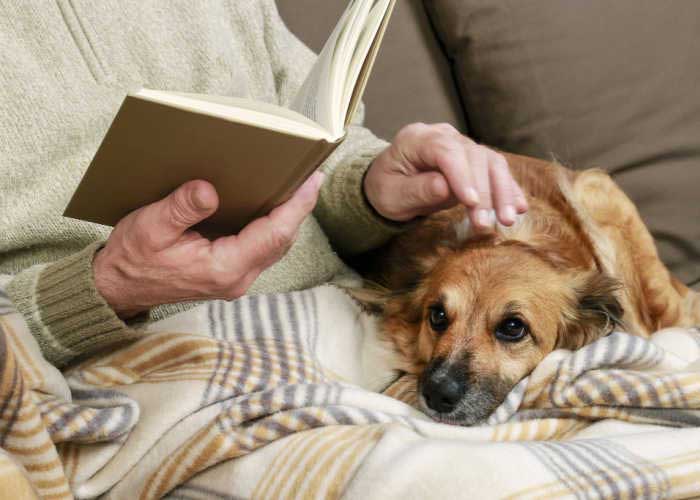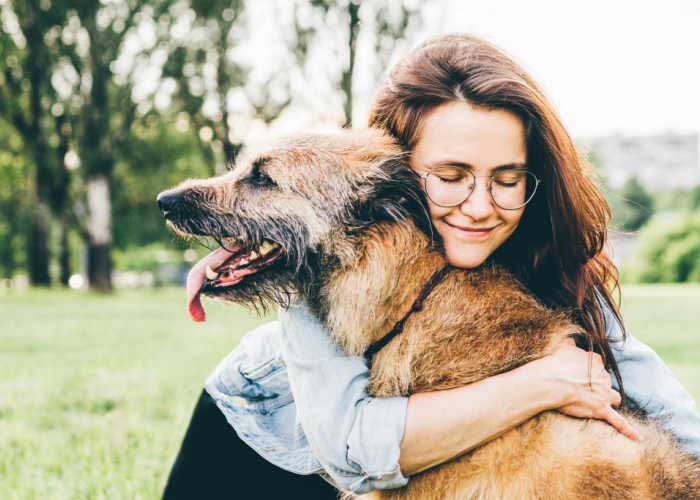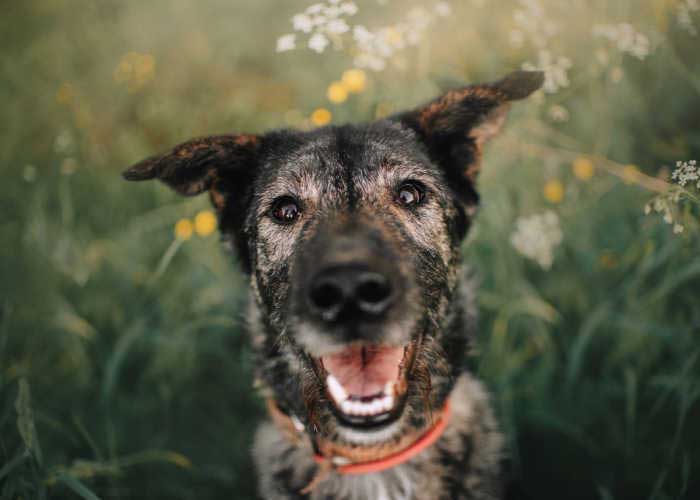Table of Contents
Even for dogs, aging is inevitable and so is the change in their needs. But how do you handle those senior moments, such as dementia in dogs?
Owning a dog is one of the finer things in life, but watching them rapidly age is just hard.
Their coats turn gray, their pace slows down, and their senses start to dull. Regardless of how well-loved and cared for, they become more susceptible to various ailments that come with aging.
Your dog could lose track of basic skills, get confused in unfamiliar places, or fail to recognize familiar faces.
He might even forget long-established habits like housebreaking and have trouble recalling routines.
If you've seen any odd behavioral changes, especially appearing lost or uncertain, then it might be experiencing dog dementia.
In this article, we will focus on dog dementia and how it affects our furry friends.
Dementia in Dogs: Overview
Also known as Canine Cognitive Dysfunction, it is a cognitive condition in dogs that is similar to Alzheimer's disease in humans.
This brain-related disorder causes behavioral changes and primarily affects impacts memory, learning, and comprehension.
By the age of 15, approximately 68% of dogs get dementia with the risk rising by 50% every year.
You may wonder what causes dementia in dogs. Well, you should know that the cause of this disease is currently unknown.
However, it is often caused by physical and chemical changes that occur along with the aging process, predisposed by brain tumors and injuries, or simply inherited from those developing the disease.
Dog Dementia Signs and Symptoms
Dog owners may find it useful to describe the most recognizable symptoms and changes linked to dementia using the widely established DISHA acronym.
Disorientation
Your dog can appear lost, seemingly confused by the surroundings, or getting trapped in corners.
Other symptoms include aimless looking at walls, trouble navigating around objects, and not recognizing familiar faces.
Interaction changes
Your once outgoing pet is now grumpy and may even growl at kids or other animals.
He can become furious and be far less interested in interacting with others or anything in his environment.
Sleep-wake cycle disruptions
Dogs who once slept peacefully may now pace throughout the night while everyone else is asleep.
They switch their daily routines around, making their evening activities their daytime pursuits.
House soiling
Your pooch stops letting you know when he needs to go outdoors to relieve himself.
He may start urinating and defecating in unusual areas throughout the house.
Activity level changes
Another indication of canine dementia is seeing your dog become less active.
He may be less inclined to be curious about the surroundings and can become less responsive to other dogs, sounds, objects, and humans.
Dog dementia has a wide range of symptoms that can be mild to severe as the condition worsens.
Recognizing the early signs is crucial but can be challenging as they are frequently mistaken as “simply getting old”.
Diagnosis of Dementia in Dogs
Even if your dog is showing any of the symptoms mentioned above, CCD in dogs is not always the cause. They can indicate that your dog is dealing with yet another illness.
Your veterinarian will need a complete medical history of your dog, including the start and nature of any illnesses as well as any possible events that may have led to the strange behaviors or complications.
He will then perform a thorough physical examination to assess your pet's overall health and cognitive abilities.
To rule out any other potential ailments, routine blood tests, ultrasounds, and X-rays are also administered.
Additionally, your vet may advise advanced imaging like an MRI or CT scan to make the final diagnosis.
Dog Dementia Treatment
Canine cognitive dysfunction requires lifelong support and therapy. While there is no known cure, you can take several steps at home to help your dog's cognitive abilities.
Maintaining a healthy and stimulating environment can help slow the progress of the disease. Usually, this entails establishing regular routines of play, exercise, and mental stimulation.
To improve your pet’s quality of life, treatment includes medication, enhanced diet, supplements, and management of behavior and environment.
Prevention of Dementia in Dogs
It is difficult to pinpoint the precise cause of CCD in dogs, making prevention tough. However, maintaining your dog's physical and mental activity may assist to fend off dementia.
Teaching him new tricks, playing games together, and allowing him to have new experiences are a few of the activities you can do to maintain your pup's mental health and sharpness.
Dog Dementia Prognosis
Life expectancy can be difficult to tell because canine dementia is a degenerative disease that manifests in a dog's senior years, comparable to Alzheimer's in humans.
There is no defined timeline for when dementia will start to affect your dog's quality of life.
So, working with your veterinarian will be the best way to keep tabs on your dog's health and cognitive abilities.
RELATED: How Long Do Dogs Live
Caring for a Dog with Dementia
You should take into account the needs of your pooch when it comes to your home, surroundings, and lifestyle.
You can help your pet cope with dementia with the following tips:
- Give your dog a quiet place to rest, go on short walks, and establish a nightly routine that includes a bathroom break to help him fall asleep.
- Instead of waiting for him to ask, take your pet with you to the garden. Put potty pads in appropriate locations to make it easier to clean up house soiling.
- To keep him from becoming lost, place the furnishings at your dog's eye level. Make sure the modifications don't make matters worse.
- Help your pooch carry out desired actions using hand signals and tasty rewards. You could also teach new, simpler actions for him to manage.
- Dementia isn’t something he should have to deal with alone. So, offer your dog comfort, assurance, and a constant reminder of your presence.
Keep in mind that at this moment, their only source of safety and security is you.
FAQs about Dementia in Dogs
Do dogs with dementia suffer?
Dog dementia frequently results in odd actions in dogs. We might not clearly see if the dog suffers but at times, you will see how confused they can get.
They could lose their housebreaking skills, become less responsive to commands, or have trouble eating and drinking.
Does dementia in dogs get worse?
Canine dementia has been compared to Alzheimer's or dementia in humans.
Although the disorder's initial symptoms are moderate, they progressively get worse over time, going beyond what is expected with normal aging.
What are the final stages of CCD?
Existing symptoms often get worse and occur more frequently.
In addition to their overnight pacing, lack of attention, and house-soiling, their behavior may become more difficult to handle.
Dementia in Dogs: Final Thoughts
Although it is perfectly normal to age, it can be very upsetting to see your pooch go through all the changes that come with it.
Aside from dementia in dogs, there are more things to watch out for, including liver disease and diabetes.
Though it may seem like a lot of work to take care of your dog as it ages, this dedication offers its unique benefits, such as the satisfaction of knowing that you've done everything you can for a companion that has depended on you since day one.
While the standard age range for senior dogs varies by breed and size, making the appropriate adjustments to your dog's routine and living space can help him live his golden years healthily and happily.
And the best thing you can do is cherish every moment you spend with who deserves your love every single day – your furry friend.


